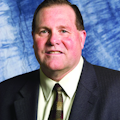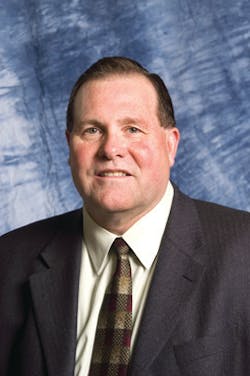Fire Politics: Exercising Your Individual Right to Vote
Throughout the United States, the primary elections are over and the November general elections are right around the corner. As we know, these November elections will occur at the local, county, state and national levels of government. The outcomes will significantly impact each and every one of our lives as well as the lives of our families and friends.
The elections will no doubt impact the philosophic and policy directions that will be taken by our governments over the next several years in our cities, counties, states and the nation as a whole. Make no mistake; these elections will also have consequences for the fire and emergency services. With all of these facts in mind, the most important thing we can do in this process, personally and as members of the fire service, is to exercise our right to vote in the November elections. Sadly, it is estimated that more than 90 million eligible voters will sit them out, and that’s a real shame.
The right to vote
One of the most critical rights we have as Americans is the right to cast a vote on Election Day. It is the strongest way we have of interjecting our feelings, thoughts and values into the selection of those who lead our country at all levels of government. Whether that right came to us at birth or upon citizenship, it has been secured over the years by people who have served our country in various capacities, many of whom were injured or killed doing so. It was an honor for me to serve in the U.S. Army in 1968 and 1969. Many of the readers of this column also served in the military before, during or after that era. Some of those who served didn’t come home alive, and that should mean something to us. These supreme acts of sacrifice are still taking place in wars that we are fighting today. There are other ways, besides the military, that patriotic people serve our country in an effort to protect us and preserve our individual rights. The right to vote on Election Day should not be taken for granted nor taken lightly. After all, people have paid and continue to pay a tremendous price so we could maintain our right to vote.
Decisions made by elected officials affect our lives in many ways. Our personal lives, no matter what our political beliefs and preferences may be, are to varying degrees driven by the results of elections. In addition to impacting us personally, there are professional impacts on us as members of the fire service. Elected officials make decisions that help us, or do not help us, in our personal lives and in our society as a whole.
It’s also true that elected officials make decisions that help us, or do not help us, as members of the fire service. Historically, the degree of support for a full range of fire service issues varies among elected officials. There is absolutely nothing wrong with supporting candidates who we think would be best at addressing issues in our personal lives and those that impact our professional lives. That’s simply the power of our individual vote. But if we fail to vote, we walk away from that power as well as a critical civic responsibility.
Cast your ballot in 2012
So what can each of us do? This column is driven each month by a consistent attempt to cover a variety of issues relating to politics and its impact on the fire service as a whole. Sometimes, it may spark action, while other times it is simply intended to be food for thought. We should all take it upon ourselves to be informed about candidates and issues that find their way onto ballots.
How can every member of the fire service (career and volunteer), no matter who you are or where you live, make a difference politically? Even if you don’t choose to get involved in politics in any other way, you can at least get out and vote in local, county, state and national elections in November 2012 and in the future.
I’ve heard people say they are not voting because they don’t like any of the candidates. Actually, you don’t have to “like” them personally, but the fact is, candidates will win the elections and assume positions that will impact us in many ways. Care enough to cast your ballot and have your say.
Congratulations to those of you who consistently vote in elections. For those who are non-voters, remember that if you don’t vote, you shouldn’t complain later. People have paid some pretty steep dues to protect your right to vote. Their sacrifices (past, current and future) should not be in vain. See you at the polls.
For more news and training on fire service politics, visit: http://www.firehouse.com/topics/politics-law.
DENNIS COMPTON, a Firehouse® contributing editor, is a speaker and the author of Progressive Leadership Principles, Concepts and Tools, the When in Doubt, Lead! books, the book Mental Aspects of Performance for Firefighters and Fire Officers, and many articles, chapters and other publications. He was the fire chief in Mesa, AZ, for five years and assistant fire chief in Phoenix, where he served for 27 years. Compton is past chairman of the Executive Board of the International Fire Service Training Association (IFSTA) and past chairman of the Congressional Fire Services Institute’s National Advisory Committee. He is currently chairman of the National Fallen Firefighters Foundation Board of Directors.
About the Author

Dennis Compton
Chief
DENNIS COMPTON is a well-known speaker and the author of several books, including his most recent offering titled Progressive Leadership Principles, Concepts and Tools. He also authored the three-part series of books titled When in Doubt, Lead, the book Mental Aspects of Performance for Firefighters and Fire Officers, as well as many articles, chapters and other publications. Compton was the fire chief in Mesa, AZ, for five years and an assistant fire chief in Phoenix, where he served for 27 years. He is past chairman of the Executive Board of the International Fire Service Training Association (IFSTA) and past chairman of the Congressional Fire Services Institute (CFSI) National Advisory Committee. Compton is currently the chairman of the National Fallen Firefighters Foundation (NFFF) Board of Directors and co-chairs the Fire Service-Based EMS Advocates Steering Committee.
